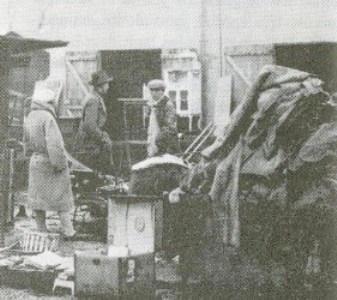
The Flea Market at Saint-Ouen
109 Avenue Michelet, 93 Saint Ouen, 18e

From André Breton's Nadja
“I am there often, looking for objects one cannot find anywhere else—out of fashion, broken, useless, almost incomprehensible."
André Breton was fascinated by « objets trouvés, » or « found objects. » He writes in Nadja,
“I am often there [at the Saint Ouen flea market], looking for objects one cannot find anywhere else—out
of fashion, broken, useless, almost incomprehensible” (62). According to Breton, the selection of the object
was indicative of latent desires, as he explains in Mad Love (1937).
When shopping with artist Alberto Giacometti one day, Breton buys a wooden spoon which, when
resting on its handle, looks like a shoe. Breton later realizes that he chose the shoe-like spoon
because he had been wanting Giacometti to sculpt a shoe-shaped ashtray (an allusion to Cinderella’s slipper)
for him, and Giacometti had never gotten around to it. Given the surrealists’ desire to access the subconscious,
Breton’s affinity for found objects is not surprising. The readymade art of Breton’s contemporaries, Marcel Duchamp
and Man Ray, elicits similar psychological experiences.
Porte de Clignancourt